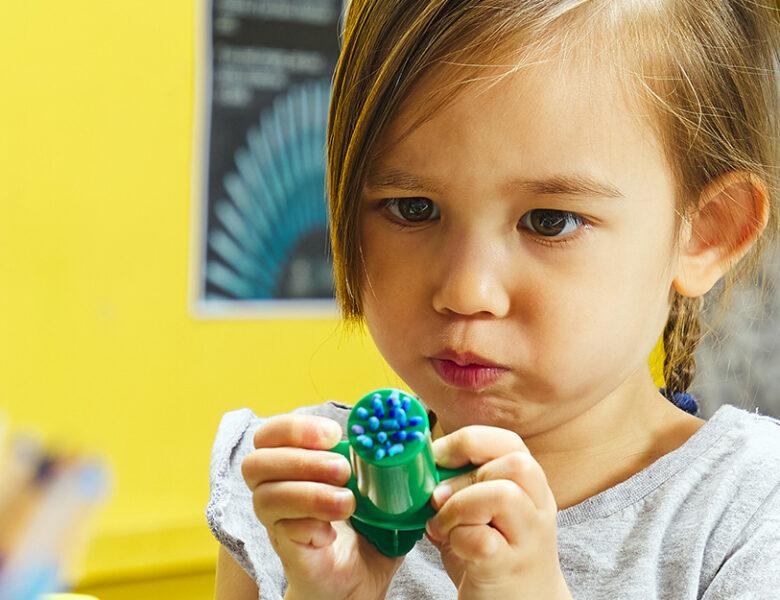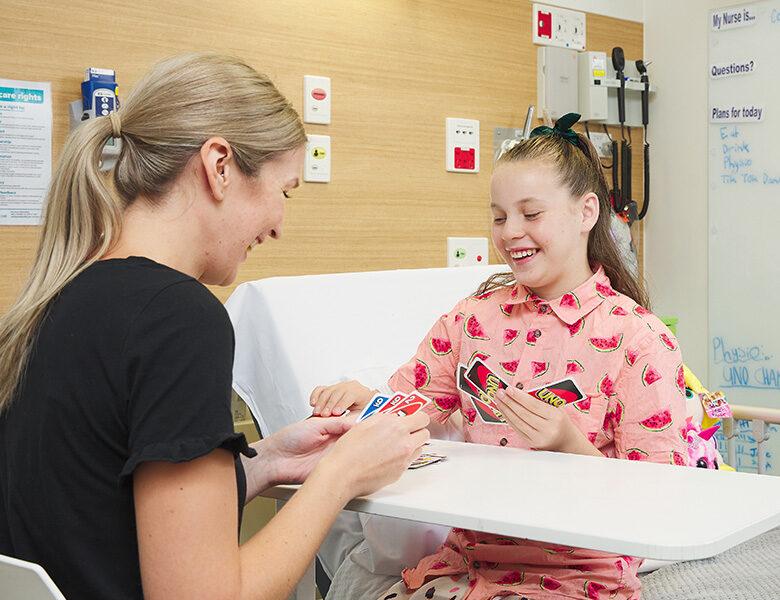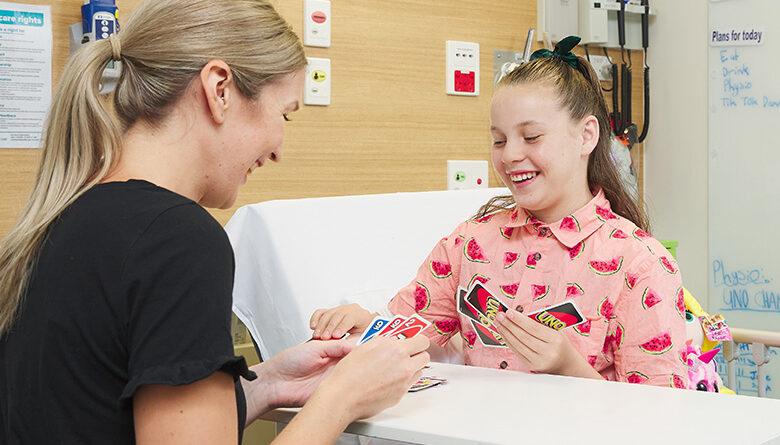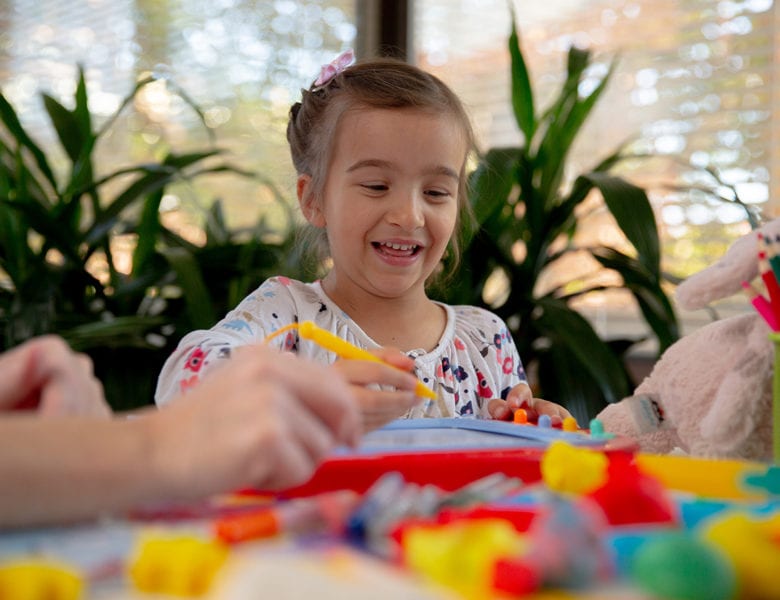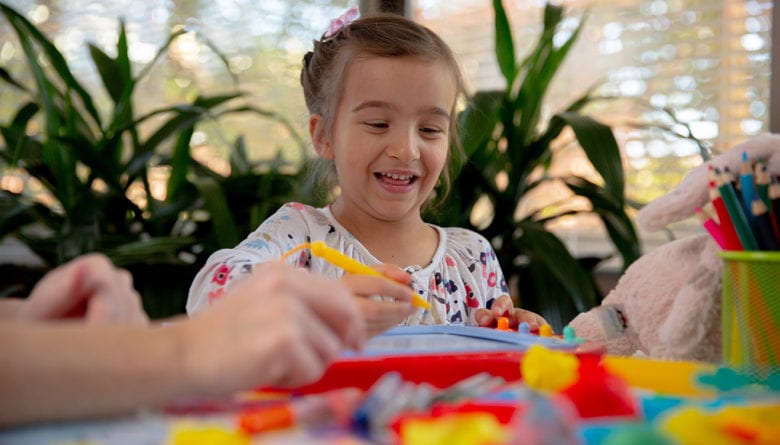Play Therapy
Working closely with patients and their families, Play Therapists provide distraction to minimise anxiety and fear, help keep patients safe, prepare and support patients for procedures, provide emotional support and create positive fun and meaningful experiences.
Each individual patient is respected, nurtured, and supported, recognising their unique needs, personality, preferences, cultural values, and capabilities to allow children to be themselves through play-based activities.


